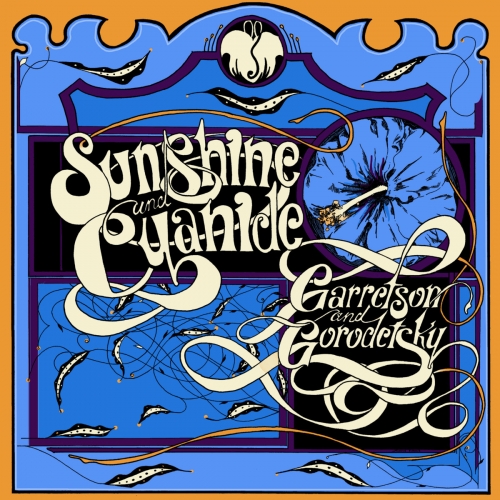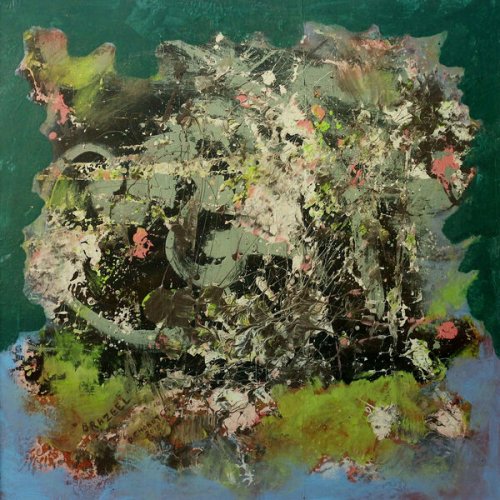Masaaki Suzuki - J.S. Bach: Partitas for Harpsichord (2002)
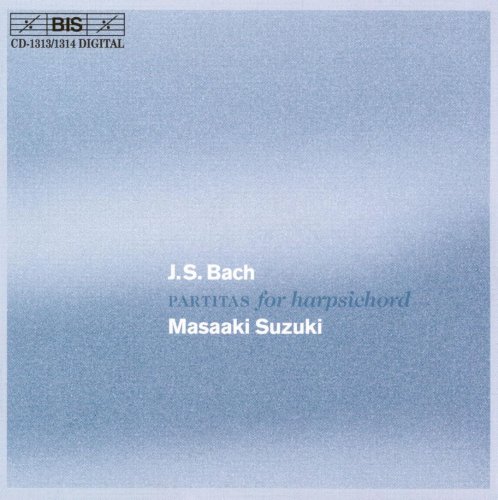
Artist: Masaaki Suzuki
Title: J.S. Bach: Partitas for Harpsichord
Year Of Release: 2002
Label: BIS
Genre: Classical
Quality: FLAC (image+.cue,log,scans)
Total Time: 02:40:55
Total Size: 1,1 Gb
WebSite: Album Preview
Tracklist: Title: J.S. Bach: Partitas for Harpsichord
Year Of Release: 2002
Label: BIS
Genre: Classical
Quality: FLAC (image+.cue,log,scans)
Total Time: 02:40:55
Total Size: 1,1 Gb
WebSite: Album Preview
CD 1:
01-06. Partita No.1, BWV 825
07-13. Partita No.3, BWV 827
14-20. Partita No.4, BWV 828
CD 2:
01-06. Partita No.2, BWV 826
07-13. Partita No.5, BWV 829
14-20. Partita No.6, BWV 830
Performers:
Masaaki Suzuki, harpsichord
Listeners familiar with other recordings in Masaaki Suzuki's ongoing traversal of Bach's solo keyboard works may find his performances of the Partitas somewhat of an anomaly. For instance, the sharply delineated juxtapositions of tempos that made his Fantasias and Fugues program so thrilling (type Q3840 in Search Reviews) are nowhere to be heard here. The interpretive agenda this time is much subtler and decidedly more introverted. Not only does his choice of relatively moderate-to-slow tempos throughout (and his observance of all repeats) make this performance one of the longest ever--each CD of this two-disc set extends beyond 80 minutes--there also is a sense of deeply considered involvement with the way phrases are turned, details attended to, and passages executed. Like Bach, who esteemed these compositions highly, Suzuki's performances suggest admiration, even occasionally excessive adoration.
Listen for instance to the way Suzuki renders the opening Sinfonia of the second Partita, to the way in which each thematic idea, however brief, is underlined through his use of subtle dynamic shading and crisp counterpoint. Likewise in the Passepied of the fifth Partita Suzuki's emphasis on inner detail often makes him sound as if he's recapitulating the recapitulations (though without ever sacrificing the movement's already quirky momentum). In less capable hands this kind of overt attention to detail could sound affected or needlessly fussy. In Suzuki's very capable ones however, we hear an artist ceaselessly probing, relishing both the significance and joy of his task.
BIS's engineering is fine, though admittedly the harpsichord sounds less immediate than in Suzuki's previous offering mentioned above. There is no shortage of outstanding harpsichord performances of Bach's Partitas, and for listeners who may prefer a performance equally as personal though a bit more extroverted, the stylish angular rhythms that characterize Blandine Verlet's performance on Philips, the freewheeling elegant ornamentation of Igor Kipnis on Seraphim, or the fresh unfettered spirit that Christophe Rousset brings to his L' Oiseau Lyre cycle make them deservedly distinctive and worthwhile as well. -- John Greene
Listen for instance to the way Suzuki renders the opening Sinfonia of the second Partita, to the way in which each thematic idea, however brief, is underlined through his use of subtle dynamic shading and crisp counterpoint. Likewise in the Passepied of the fifth Partita Suzuki's emphasis on inner detail often makes him sound as if he's recapitulating the recapitulations (though without ever sacrificing the movement's already quirky momentum). In less capable hands this kind of overt attention to detail could sound affected or needlessly fussy. In Suzuki's very capable ones however, we hear an artist ceaselessly probing, relishing both the significance and joy of his task.
BIS's engineering is fine, though admittedly the harpsichord sounds less immediate than in Suzuki's previous offering mentioned above. There is no shortage of outstanding harpsichord performances of Bach's Partitas, and for listeners who may prefer a performance equally as personal though a bit more extroverted, the stylish angular rhythms that characterize Blandine Verlet's performance on Philips, the freewheeling elegant ornamentation of Igor Kipnis on Seraphim, or the fresh unfettered spirit that Christophe Rousset brings to his L' Oiseau Lyre cycle make them deservedly distinctive and worthwhile as well. -- John Greene
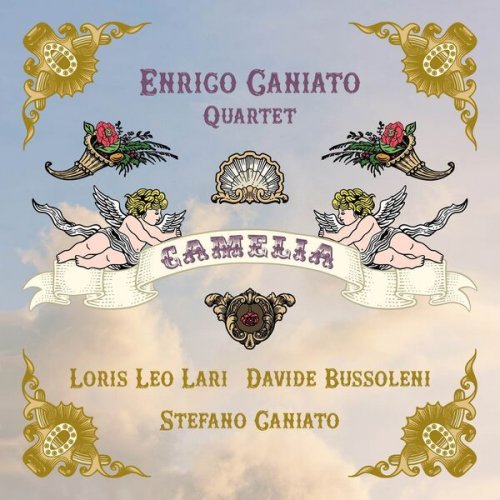

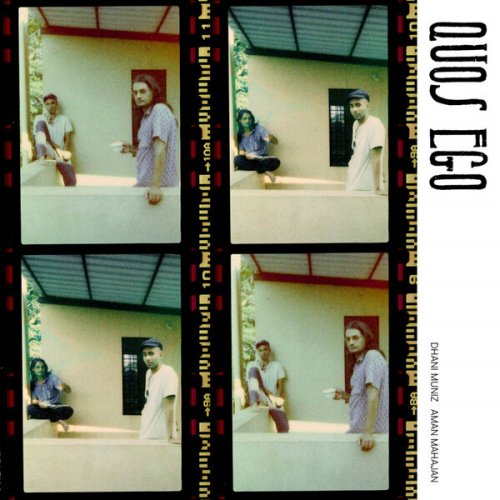
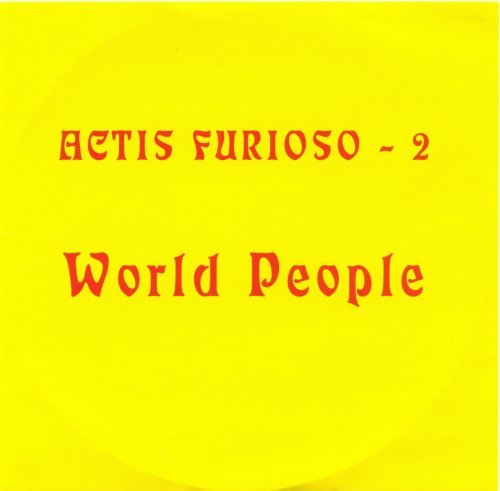
![Aaron Quinn - To Be Held (2026) [Hi-Res] Aaron Quinn - To Be Held (2026) [Hi-Res]](https://img.israbox.com/img/2026-02/20/zmwyd3pc4g0fv5hzoz5kht5h3.jpg)
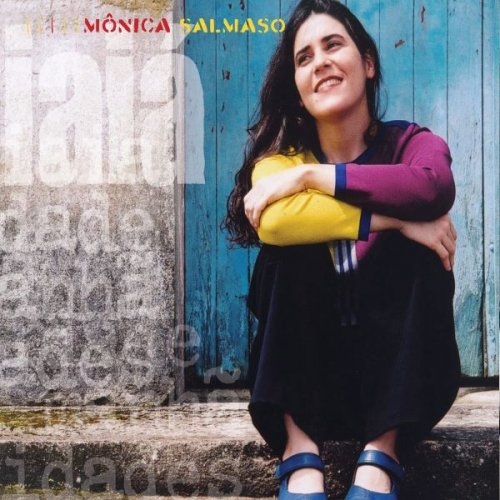
![Jeremy Pelt - Our Community Will Not Be Erased (2026) [Hi-Res] Jeremy Pelt - Our Community Will Not Be Erased (2026) [Hi-Res]](https://www.dibpic.com/uploads/posts/2026-02/1771945030_folder.jpg)
